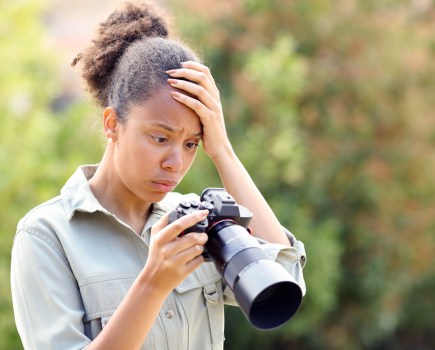The furore follows a campaign by musician Paul Weller and his wife Hannah who won a High Court battle against the Daily Mail after its website published unpixelated photos of their children captured by a freelance photographer at a shopping centre in Los Angeles in October 2012.
The Wellers won a reported £10,000 in damages against Associated Newspapers.
The couple’s campaign has now reached the House of Lords where peers have been urged to change the law to protect children’s privacy.
An online petition, set up by the Campaign for Children’s Privacy, has so far gained 356 signatures.
However, the move quickly led to fears for photographers’ rights.
‘Dangerous’ proposal
On its Facebook page, the Royal Photographic Society (RPS) said: ‘There is lobbying to prevent the photographing of children under any circumstances, even in public spaces, the result of harassment of Paul and Hannah Weller by paparazzi.
‘The Society would view this with significant concern if government decides to legislate.’
RPS director general Michael Pritchard told Amateur Photographer (AP): ‘There is enough existing legislation to deal with harassment without the need for such a blanket law…’
New laws could pose a threat to street photographers.
Pritchard questioned how ‘publication’ would be defined and cautioned that ‘there are far wider implications [for] general amateur and professional photography that currently would not need a model release [form] signing…
‘From an amateur’s perspective, would that definition of “publication” include showing in a photo competition (online/in a gallery)?’
The National Union of Journalists’ Photographers’ council warned: ‘The proposal is simplistic, dangerous, wrong in principle, unworkable and not the answer to the problems they [the campaigners] raise.
‘Banning photographs of children – all children – without prior parental consent would have a chilling effect on a free press.
‘The campaign does propose exceptions for crowd shots and photographs published in the public interest.’
Threat to social media photos
The NUJ’s Photographers’ council added: ‘Moreover, no one seems to have taken into account the many thousands – millions – of photographs of under-18s published daily on Facebook and other social media. Most of which are taken by the children themselves!’
A member of the council told AP: ‘If this carries on as discussed, it will kill both street photography and social media.’
In a statement, the NUJ added: ‘Who is going to have time, when under pressure of daily deadlines, to decide whether or not the publication of an innocent photograph of one or more children aged under 18 can be justified “in the public interest”?
‘There is a general public interest in both freedom of expression and in being able to photograph society generally and in public places.’
The Campaign for Children’s Privacy claims that photos of children published on websites may be used inappropriately, by criminals adapting them to create images of child abuse, for example.
They add that exposing children’s identity can also make them ‘targets for kidnap or other crime by individuals who may want to harm the parents’.
The NUJ points to the existing Editors’ Code of Conduct, drawn up by the Independent Press Standards Organisation, which states: ‘Editors must not use the fame, notoriety or position of a parent or guardian as sole justification for publishing details of a child’s private life.’
Impact on public
The Campaign for Children’s Privacy added: ‘This issue does not just affect famous people. Members of the public also find themselves in the media spotlight.
‘Unpredictable events, such as becoming the victim of a crime, can put anyone’s child on the front page…
‘A law change would have no negative impact on press freedom.
‘Pixelating the faces of children in pictures does not prevent the press from reporting a relevant story – only from exposing their identity.’
Campaigners deny they are calling for photos to be banned.
‘The ask is simple: in a photograph where a child is identified, if there is no consent and publication is not in the public interest, publishers must pixelate the faces of minors to respect their privacy.’







